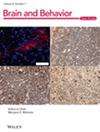Causal Relationship Between the Abuse of Cholesterol-Lowering Medication, Blood Pressure Medication, Insulin, and Exogenous Hormones and Cerebral Infarction
Abstract
Background
Cholesterol-lowering medications, blood pressure medication, insulin, and exogenous hormones (including hormone replacement therapy, oral contraceptives, and minipills) are commonly utilized in clinical practice. Recent studies indicate that the use of these medications may significantly influence the occurrence and progression of cerebral infarction. This study aims to investigate the relationship between these medications and cerebral infarction using Mendelian randomization (MR) analysis, with the goal of offering valuable insights for the clinical management of cerebral infarction.
Methods:
To explore the correlation between cholesterol-lowering medication, blood pressure medication, insulin, exogenous hormones, and cerebral infarction, relevant single nucleotide polymorphisms (SNPs) were extracted from the genome-wide association study (GWAS) database. Methods for univariate MR analysis include inverse variance weighting (IVW), the weighted median method, and the MR-Egger method, with IVW being the predominant approach. Subsequently, multivariable Mendelian randomization (MVMR) was conducted on the positive results obtained from the IVW analysis to verify the independent effect of each positive exposure, with IVW still predominating. The causal relationship between this class of drugs and cerebral infarction was evaluated using odds ratio (OR) and 95% confidence interval (CI). MR-PRESSO was used to test for pleiotropy. The robustness of the findings was assessed through leave-one-out analysis, Cochran's Q test, and funnel plot.
Results:
Univariate MR results indicated that the use of blood pressure medication, insulin, and cholesterol-lowering medication was significantly associated with the occurrence of cerebral infarction (all p < 0.05). However, due to the stringent inclusion criteria for SNPs, the number of available SNPs is insufficient to elucidate the association between exogenous hormone drugs, contraceptives, and cerebral infarction. Furthermore, the MVMR analysis, which builds upon univariate MR, only identified significant causal associations between blood pressure medication, insulin, and cerebral infarction (p < 0.05). The association between cholesterol-lowering medication and cerebral infarction was confounded by other positive exposures and did not demonstrate a significant causal relationship when only its independent effects were considered. After integrating the findings from both univariate and MVMR and controlling for confounding variables to the greatest extent possible, the available evidence supports only a potential causal relationship between blood pressure medication, insulin, and cerebral infarction.
Conclusion:
This study suggests that the misuse of blood pressure medications and insulin is a risk factor for the occurrence and progression of cerebral infarction.


 求助内容:
求助内容: 应助结果提醒方式:
应助结果提醒方式:


